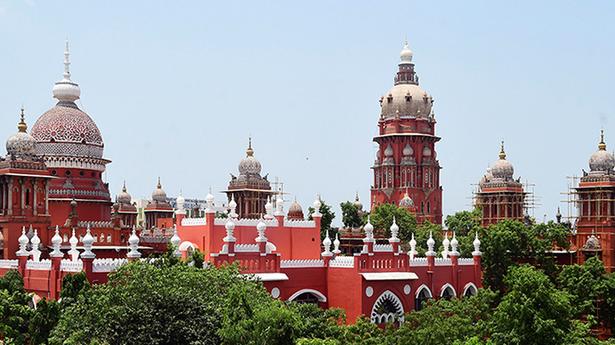
A clear case of suicide, not rape and murder, says Madras High Court
The Hindu
Judge did not find any material to suspect foul play in the death of a girl student of a private school in Kallakurichi district
The death of a Class XII girl student of a private school in Kallakurichi district on July 13 prima facie appeared to be “a clear case of suicide” and not of rape and murder, as suspected by her parents, the Madras High Court has said.
The death led to large-scale riots and ransacking of public as well as private property worth several crores of rupees on July 17.
However, Justice G.K. Ilanthiraiyan did not find any material to suspect foul play when he sifted through the medical as well as other evidence, including a reported suicide note, while granting bail to the school correspondent, secretary, principal and two women teachers who were arrested following the violence.
Though the bail was granted last week, a detailed order, incorporating the reasons and the conditions, was released on Monday. The judge recalled that two post-mortems had been conducted on the body of the girl since her parents had doubted the genuineness of the first post-mortem and approached the High Court raising suspicions over her death.
Subsequently, when they insisted on a third post-mortem, too, by including a forensic expert of their choice, the court did not accept their request but ordered a review of the two post-mortem reports by a team of experts from Jawaharlal Institute of Postgraduate Medical Education and Research (JIPMER) in Puducherry. The two post-mortem reports had concluded that the girl appeared to have died of the injuries sustained on her person. JIPMER experts, too, concurred with the findings. Stating that the injuries could have been sustained when the girl jumped from the third floor of the school building, the judge said there was no evidence of rape and murder.
He said the prosecution’s case, too, was that the girl had jumped from the third floor. However, it had booked the administrators of the school and the teachers on the charge of abetment, besides invoking the Juvenile Justice (Care and Protection of Children) Act, and the Tamil Nadu Prohibition of Harassment of Women Act.
Extracting the entire suicide note where the girl had reportedly expressed difficulties in solving chemistry problems and the pressure put on her, as well as other students, by the teachers to perform well in academics, the judge pointed out that the note had insisted on returning the fees to her parents and contained an apology to her friends and others.













